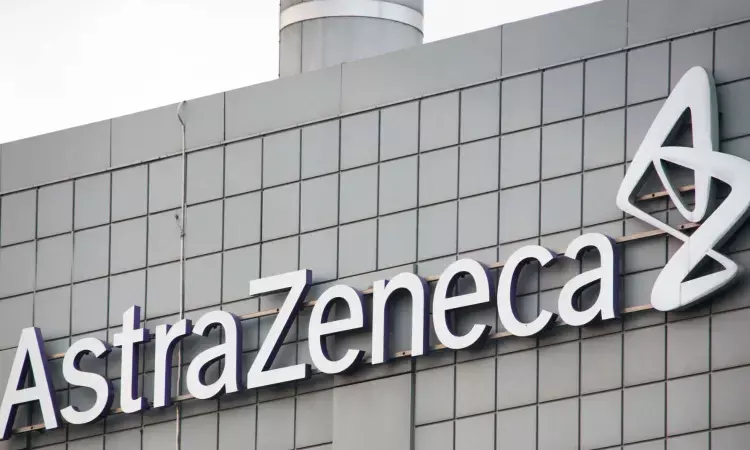- Home
- Medical news & Guidelines
- Anesthesiology
- Cardiology and CTVS
- Critical Care
- Dentistry
- Dermatology
- Diabetes and Endocrinology
- ENT
- Gastroenterology
- Medicine
- Nephrology
- Neurology
- Obstretics-Gynaecology
- Oncology
- Ophthalmology
- Orthopaedics
- Pediatrics-Neonatology
- Psychiatry
- Pulmonology
- Radiology
- Surgery
- Urology
- Laboratory Medicine
- Diet
- Nursing
- Paramedical
- Physiotherapy
- Health news
- Fact Check
- Bone Health Fact Check
- Brain Health Fact Check
- Cancer Related Fact Check
- Child Care Fact Check
- Dental and oral health fact check
- Diabetes and metabolic health fact check
- Diet and Nutrition Fact Check
- Eye and ENT Care Fact Check
- Fitness fact check
- Gut health fact check
- Heart health fact check
- Kidney health fact check
- Medical education fact check
- Men's health fact check
- Respiratory fact check
- Skin and hair care fact check
- Vaccine and Immunization fact check
- Women's health fact check
- AYUSH
- State News
- Andaman and Nicobar Islands
- Andhra Pradesh
- Arunachal Pradesh
- Assam
- Bihar
- Chandigarh
- Chattisgarh
- Dadra and Nagar Haveli
- Daman and Diu
- Delhi
- Goa
- Gujarat
- Haryana
- Himachal Pradesh
- Jammu & Kashmir
- Jharkhand
- Karnataka
- Kerala
- Ladakh
- Lakshadweep
- Madhya Pradesh
- Maharashtra
- Manipur
- Meghalaya
- Mizoram
- Nagaland
- Odisha
- Puducherry
- Punjab
- Rajasthan
- Sikkim
- Tamil Nadu
- Telangana
- Tripura
- Uttar Pradesh
- Uttrakhand
- West Bengal
- Medical Education
- Industry
Enhance risk evaluation for Rare Inflammatory Disease drug: USFDA asks AstraZeneca

Cambridge: The US Food and Drug Administration (FDA) has issued a complete response letter (CRL) regarding the supplemental Biologics License Application (sBLA) for long-acting C5 complement inhibitor Ultomiris (ravulizumab-cwvz) for the treatment of adult patients with neuromyelitis optica spectrum disorder (NMOSD) who are anti-aquaporin-4 (AQP4) antibody positive (Ab+).
The CRL did not request additional analysis or reanalysis of the Phase III CHAMPION-NMOSD trial data included in the sBLA submission and did not raise concerns about the efficacy or safety data from the trial.
The FDA requested modifications to enhance the Ultomiris Risk Evaluation and Mitigation Strategy (REMS) to further validate patients’ meningococcal vaccination status or prophylactic administration of antibiotics prior to treatment.
"Alexion, AstraZeneca Rare Disease is working closely with the FDA regarding next steps for the REMS modifications and remains committed to bringing Ultomiris to people living with NMOSD in the US as quickly as possible," the release stated.
Ultomiris is currently approved for the treatment of certain adults with NMOSD in the European Union (EU), Japan and other countries.
Ultomiris is approved by the FDA for the treatment of adult patients with generalised myasthenia gravis (gMG) who are anti-acetylcholine receptor (AChR) Ab+, and certain adults and children with paroxysmal nocturnal haemoglobinuria (PNH) or atypical haemolytic uraemic syndrome (aHUS).
NMOSD is a rare disease in which the immune system is inappropriately activated to target healthy tissues and cells in the central nervous system (CNS). Approximately three-quarters of people with NMOSD are anti-AQP4 Ab+, meaning they produce antibodies that bind to a specific protein, aquaporin-4 (AQP4). This binding can inappropriately activate the complement system, which is part of the immune system and is essential to the body’s defence against infection, to destroy cells in the optic nerve, spinal cord and brain.
It most commonly affects women and begins in the mid-30s. Men and children may also develop NMOSD, but it is even more rare. People with NMOSD may experience vision problems, intense pain, loss of bladder/bowel function, abnormal skin sensations (e.g., tingling, prickling or sensitivity to heat/cold) and impact on coordination and/or movement. Most people living with NMOSD experience unpredictable relapses, also known as attacks. Each relapse can result in cumulative disability including vision loss, paralysis and sometimes premature death. NMOSD is a distinct disease from other CNS diseases, including multiple sclerosis. The journey to diagnosis can be long, with the disease sometimes misdiagnosed.
Read also: AstraZeneca Calquence approved in China for chronic lymphocytic leukaemia
Ruchika Sharma joined Medical Dialogue as an Correspondent for the Business Section in 2019. She covers all the updates in the Pharmaceutical field, Policy, Insurance, Business Healthcare, Medical News, Health News, Pharma News, Healthcare and Investment. She has completed her B.Com from Delhi University and then pursued postgraduation in M.Com. She can be contacted at editorial@medicaldialogues.in Contact no. 011-43720751


